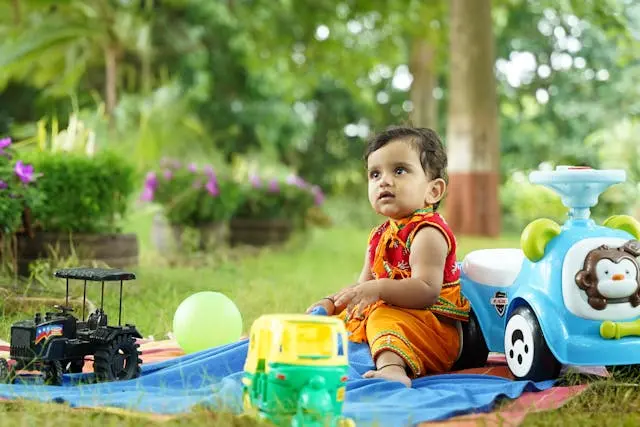From Setbacks to Superpowers: Empowering Your Kids to Rise Above Rejection
As parents, we all know that rejection can feel like a heavyweight villain, lurking in the shadows, ready to strike. But fear not, for we hold the key to transforming rejection into an opportunity for growth and resilience.
In this blog, we will equip you with actionable tips and strategies to help your kids bounce back from rejection stronger than ever before. Get ready to unleash their inner hero, as we dive into the transformative power of resilience and guide you on a journey to raising resilient heroes.
Together, let’s empower our kids and inspire them to navigate life’s challenges with unwavering bravery and an indomitable spirit.
How does childhood trauma contribute towards fear of rejection?
Childhood trauma can indeed contribute to the development of fear of rejection. One form of childhood trauma that can cause this fear is abandonment trauma. Experiencing loss, neglect, or rejection early in life can lead to an overwhelming fear of rejection later on. According to research, children who have been abused or traumatized during their formative years may develop complex post-traumatic stress disorder (CPTSD), which can contribute to the fear of rejection.
Adverse childhood experiences, such as trauma and rejection, can impact attachment styles and may result in an exaggerated fear of rejection in adulthood. It’s important to note that the effects of childhood trauma can vary from individual to individual, and seeking professional help or therapy can be beneficial in addressing and overcoming these fears.
Who experiences childhood trauma?
Childhood trauma can affect anyone, but kids are more susceptible than adults.
Numerous factors, like abuse and neglect, bullying, family strife, and possibly the passing away of a loved one, can result in trauma.
When your parents are being abusive or rejecting towards you as a child, you can believe that YOU are to blame for their actions or that YOU are the problem! It’s typical to feel guilty and humiliated about what occurred when you were younger. young as a grown-up looking back at these experiences.
What happens when fathers reject their children
A child’s emotional and psychological welfare may be significantly and permanently impacted if they feel their father has rejected them. Fathers are frequently viewed by children as protectors, mentors, and sources of safety and support. They consequently feel exposed and uneasy if their father is away or dismissive.
Low self-esteem, a sense of worthlessness, sadness, anxiety, and difficulty developing meaningful relationships as an adult are some typical outcomes of this kind of rejection.
It is essential that fathers understand how their behaviour affects their kids and take the necessary efforts to create a healthy and meaningful relationship with them. Fathers may influence their children’s growth and put them on a path to a happy and fulfilling life by doing this.
To have a profound look into the impact of unavailable fathers on childhood trauma, read our blog post.
Signs that Your Child May Fear Rejection Due to Childhood Trauma

Childhood trauma can have a profound impact on a child’s emotional well-being and can sometimes lead to a fear of rejection. This fear can affect various aspects of their life, including relationships and social interactions. Here are some signs to look out for if you suspect that your child may be experiencing a fear of rejection stemming from childhood trauma:
Avoidance of Social Interactions: Notice if your child constantly avoids situations where they may face potential rejection. They may shy away from group activities, refuse invitations, or isolate themselves from peers.
Low Self-Esteem: Children who fear rejection may have low self-esteem and constantly doubt their worth and abilities. They may be overly critical of themselves and struggle with self-acceptance.
Excessive Need for Approval: Keep an eye out for a constant need for reassurance and approval from others. These children may seek constant validation and may go to great lengths to please others to avoid rejection.
Extreme Sensitivity to Criticism: Children who fear rejection may become hypersensitive to criticism. They may take even constructive feedback as personal attacks, leading to excessive defensiveness or avoidance of situations where they might receive criticism.
Difficulty Trusting Others: Children who have experienced trauma and fear rejection may develop trust issues. They may find it challenging to trust others and may distance themselves from forming deep, meaningful relationships.
Perfectionism: Children who fear rejection may feel that they must be perfect to avoid rejection. They may exhibit perfectionistic tendencies, setting unrealistically high standards for themselves in an attempt to gain approval and acceptance.
Withdrawal and Isolation: If your child starts to withdraw from social activities, hobbies, or relationships they once enjoyed, it may indicate a fear of rejection. They may isolate themselves to protect themselves from potential rejection and disappointment.
Helping Your Kids Bounce Back from Rejection:
We all know that rejection can feel like a mega-sized punch to the gut, no matter how old we are. And as superhero parents, it’s our duty to equip our kids with the superpowers they need to navigate through life’s ups and downs – including the inevitable sting of rejection. So, how can we be their sidekicks and help them bounce back stronger than ever? Fear not, fellow superheroes!

Here are some actionable tips that will make a real difference:
- Be an Empathetic Ear
When your youngster experiences rejection, their heart might feel as heavy as Thor’s hammer. So, call for a huddle, whip up some hot cocoa, and have a heart-to-heart chat.
Give them a safe space to vent, express their feelings, and let them know it’s normal to feel disappointed or hurt.
Sometimes, they just need someone to say, “Hey, I’ve had my fair share of battles too, and it hurts.”
- Encourage Super Coping Mechanisms
Rejection can knock even the mightiest superheroes off their feet, but it’s important to teach our kids how to bounce right back into the action.
Help them discover healthy ways to cope, like immersing themselves in activities they truly enjoy or assembling their squad of supportive friends.
Encourage them to channel their energy into something positive – whether it’s painting masterpieces, scoring goals on the field, or penning those powerful rap lyrics they’ve been humming.
- Teach Super Resilience
Rejection often goes hand in hand with failure, but remind your sidekicks that it’s not the end of their superhero journey.
Show them that even the most renowned heroes have faced rejection at some point. Share tales of famous superheroes like J.K. Rowling’s Harry Potter, who battled multiple publishers’ rejections before becoming a global sensation.
Let your kids know that stumbling is part of their cosmic quest, and they possess the strength to rise again, even stronger than before.
- Foster the Growth Mindset
Help your young heroes develop a growth mindset – the power to see challenges as opportunities for growth, not as villainous roadblocks.
Encourage them to view rejection as a catalyst for learning, improvement, and unleashing their hidden potential.
Remind them that their success isn’t defined by the number of rejections they encounter, but by their unwavering determination to keep battling and growing.
- Emphasize Their Heroic Worth
In a world fixated on likes, followers, and popularity contests, it’s vital to remind our kids that their worth extends far beyond external validation.
Help them forge an unshakeable sense of self-worth based on their unique superpowers, talents, and values.
Encourage them to celebrate their strengths and accomplishments, regardless of what the villainous naysayers might think or say.
- Lead by Heroic Example
Remember, our caped crusaders are always watching us with their laser-focused eyes. So, it’s crucial to show them how to handle rejection in the most heroic way possible! Share your own tales of encounters with rejection and how you overcame them with flying colors.
Let them witness that even though rejection might sting, it has no power to define you or your worth.
Demonstrate that resilience, perseverance, and a positive attitude can soar through the clouds and conquer any challenge that comes their way.
With these actionable tips in your superhero toolkit, you’ll guide your kids through the rollercoaster ride of rejection, transforming them into unstoppable forces of resilience. Together, you’ll create a league of extraordinary individuals who rise above adversity, embrace their inner heroes, and conquer the world with their indomitable spirit. Go forth, my fellow superheroes, and help your kids soar!
Conclusion
If you feel like you’ve been affected by childhood trauma, it’s important to seek help. If you have been a victim of abuse, there are many resources available for you. Therapy can be a great way to work through these issues and learn how they affect your life today.









